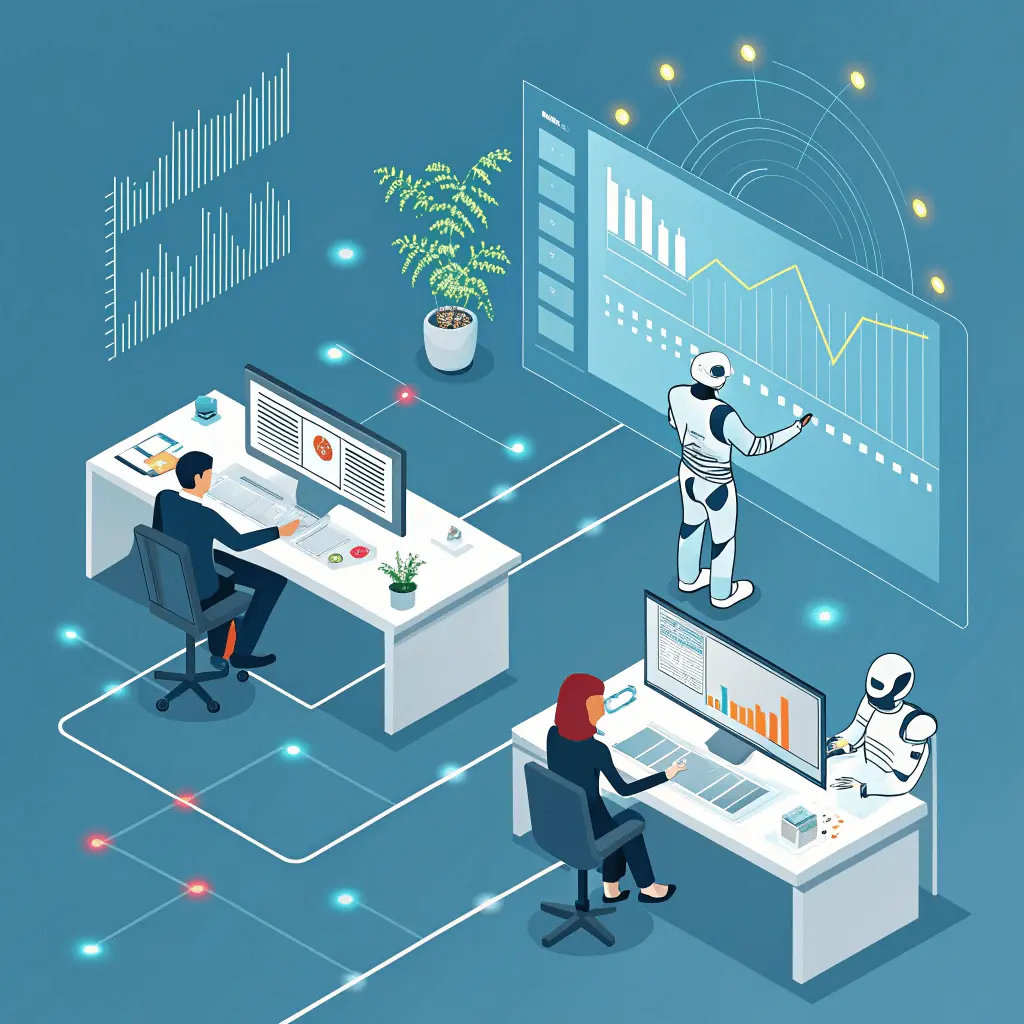
Artificial Intelligence (AI) is no longer just a buzzword; it’s a robust tool transforming business operations. Companies across various industries are incorporating AI deployment systems to streamline workflows, enhance decision-making, and foster innovation. With the power of AI, businesses are seeing unprecedented improvements in efficiency and productivity. Understanding how these systems work and their impact is essential for organizations looking to harness their full potential. Keep reading to explore the significant benefits and considerations of integrating AI into business practices.
Understanding AI Deployment in Modern Business Practices

AI deployment is all about integrating smart algorithms that can learn, predict, and act on their own. These systems help businesses make sense of large data sets and support decision-making across areas like customer service and supply chain analytics. But deploying AI takes more than just installing software—it requires planning, investment, and a shift in how teams work and think.
To make this transition smoother, many companies turn to an AI deployment system that helps integrate AI into existing operations while minimizing disruption. These systems ensure alignment with business goals and help identify issues early. As AI becomes more central to digital transformation, businesses are adopting a more holistic approach, focusing on long-term monitoring and continual improvement.
The Transformation of Business Efficiency Through AI
AI is revolutionizing business operations by automating repetitive tasks, allowing employees to focus on strategic work. AI systems streamline operations through advanced analytics and predictive maintenance, reducing downtime and increasing reliability. AI can forecast demands and optimize inventory, saving resources and enhancing customer satisfaction.
AI-powered chatbots and virtual assistants provide 24/7 customer service support, standardizing service delivery and improving operational speed. AI systems enable businesses to analyze vast data, making informed decisions and identifying trends, risks, and opportunities. This efficiency gains not only reduce costs but also boost productivity, providing a competitive edge.
How AI Systems are Redefining Productivity Metrics
AI deployment is revolutionizing productivity measurement and definition. Traditional metrics often fail to account for the holistic benefits of AI, necessitating a reevaluation of performance indicators. AI can improve data entry accuracy and analysis speed, leading to better-quality output in less time. This challenges the notion that longer hours necessarily lead to higher productivity.
Qualitative aspects like creativity and innovation become crucial productivity markers. AI also enables strategic allocation of human capital, fostering skills that complement AI capabilities, leading to higher job satisfaction and engagement. Productivity metrics now consider the effectiveness of AI tools, requiring investment in training programs and best practices.
The Synergy between AI and Human Workforce for Optimal Output

AI and human collaboration are key to innovation and efficiency. AI excels in pattern recognition, data processing, and task execution, while humans bring context, ethical considerations, and creative problem-solving. To create a synergy, businesses need to nurture a culture where technology is seen as an enabler rather than a replacement.
Training and reskilling initiatives are essential for businesses to equip their teams with AI capabilities. Trust and transparency are crucial in managing collaboration, and identifying areas where human-AI collaboration can yield the highest returns is essential. This can include creative industries using AI for data-related tasks, or data-driven fields requiring human oversight and context.
Measuring the Long-term Impact of AI on Business Growth and Scalability
AI deployment is crucial for long-term growth and scalability, as it provides a deeper understanding of customer needs and market opportunities, informs product development, and helps businesses adapt to changing environments. AI systems can handle increased workloads and adapt to changing environments with minimal input, making them essential for expansion without increasing costs or resource consumption.
Continuous data analytics can refine business processes, leading to long-term efficiencies and cost savings. Businesses must remain agile in their AI strategy, regularly reviewing and updating deployment to stay competitive and well-positioned for future advancements.
Overall, the synergy between AI systems and the human workforce is reshaping business landscapes. By empowering each other’s strengths, they’re unlocking levels of efficiency and productivity previously unattainable. As AI becomes more integrated into business strategies, its long-term impact on growth and scalability will continue to redefine success in the digital age.



